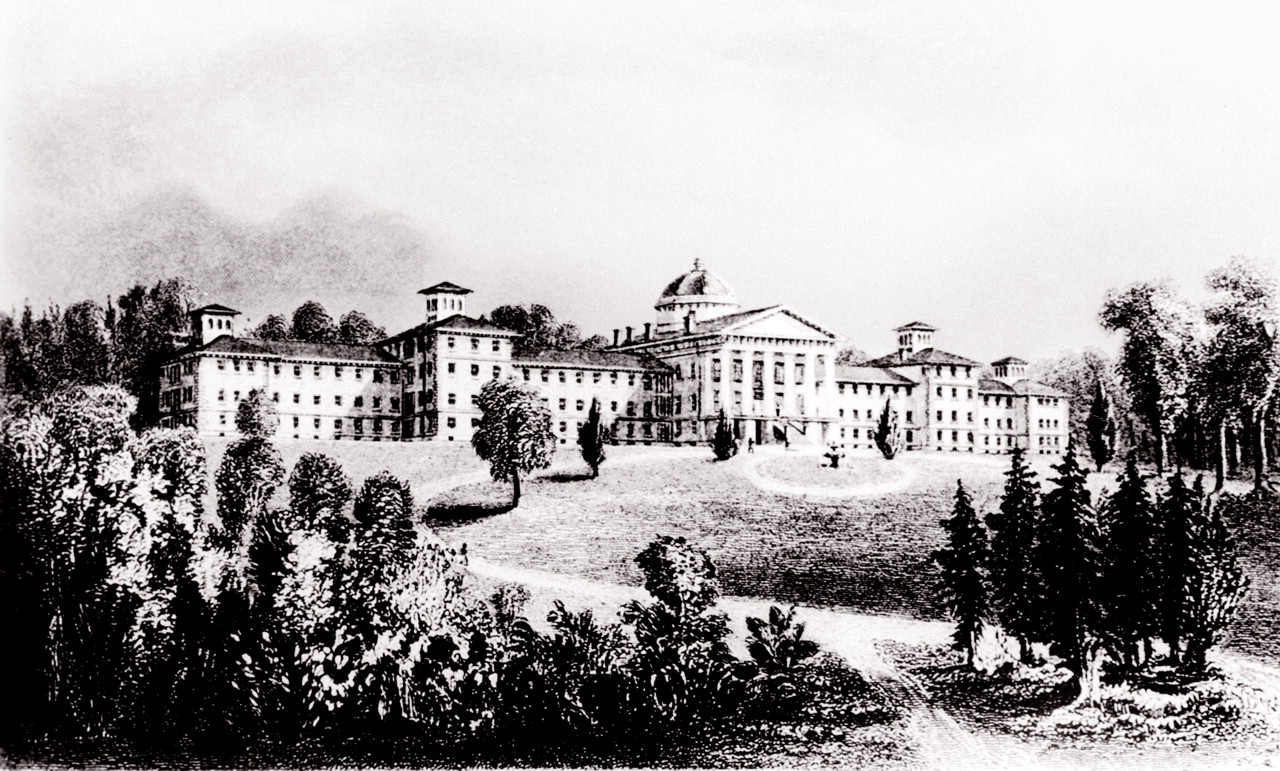The first of New Jersey’s public mental hospitals, Trenton Psychiatric Hospital, began providing services on May 15, 1848. The hospital was founded by Dorothea Lynde Dix, the renowned pioneer and advocate for humane care and treatment of the mentally ill. Ms. Dix always looked upon Trenton Psychiatric Hospital as her “firstborn child.” She spent her declining years as a guest of the hospital and died there in 1887.
Before the opening of the hospital, the mentally ill of New Jersey were “cared for” in jails, almshouses, or private homes where they were frequently confined to attics, cellars, or outbuildings. Regardless of the setting, however, conditions were very poor and rarely reflected any aspect of humane treatment. During the first year of operation, under the superintendent Dr. Horace A. Buttolph, the hospital admitted and treated 86 patients. Treatment modalities at the time included general and local depletion, medicine, baths, exercise, and regulation of diet. Medical treatment was supplemented by “moral treatment,” with emphasis on creating an atmosphere of serenity.
In 1907 Dr. Henry A. Cotton became the medical director, and a new era in the treatment of mental diseases began. Among other improvements, Dr. Cotton is credited with abolishing all forms of mechanical restraints and implementing daily staff meetings to discuss patient care. Over the years, new treatments such as hydrotherapy, occupational therapy, heavy metal therapy, insulin, and metazol became available. In 1940 ECT and in 1947 psychosurgery became available. Trenton Psychiatric Hospital also continued to expand its training program from nursing to social work, occupational therapy, and psychiatric residency.
Development of tranquilizing drugs in the mid-1950s brought about important changes in the hospital treatment programs. Under proper medication, many patients who had been hospitalized for years were able to return to the community, while others became more amenable to psychotherapy and other treatment methods. For the first time in 100 years, the doors of many wards were unlocked, giving patients a degree of freedom in keeping with their progress toward recovery.
The remarkable success of the comprehensive program of services that has evolved is measured by a significant reduction in the patient population. On June 1, 1954, 4,237 persons were hospitalized at Trenton Psychiatric Hospital. In 1968, 14 years later, there were under 2,800 patients in residence (this reduction occurring in the face of an ever-increasing admission rate), and today the hospital has a capacity of 376 beds. The various names given to the hospital over the years define its changing role. In 1848 it was the New Jersey State Lunatic Asylum. In 1893 the name was changed to New Jersey State Hospital at Trenton. In 1971 it received its current name, Trenton Psychiatric Hospital. Overcrowded, understaffed, and without public support, both moral and financial, Trenton Psychiatric Hospital was for years little more than a custodial institution. But as more modern treatment methods were devised and community supports and services for rehabilitated patients were put in place, the hospital became part of a therapeutic community.


